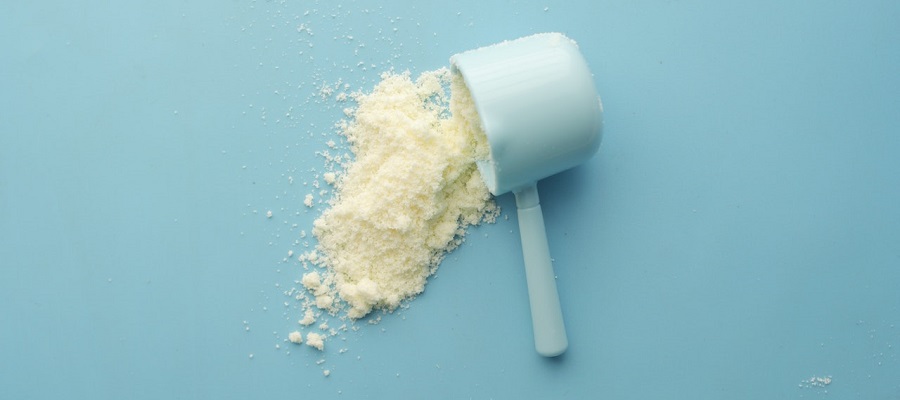Protein is an essential macronutrient that is required by the body for growth, repair, and maintenance of tissues. It is made up of amino acids, which are the building blocks of protein. Protein deficiency occurs when the body does not get enough protein to meet its needs. This can lead to a range of health problems, including stunted growth, weakened immune system, and muscle wasting.
Definition of Protein Deficiency
| Age Group | Protein Intake for regular people |
|---|---|
| Infants (0-6 months) | 9 grams per day |
| Infants (7-12 months) | 11 grams per day |
| Children (1-3 years) | 13 grams per day |
| Children (4-8 years) | 19 grams per day |
| Boys (9-13 years) | 34 grams per day |
| Boys (14-18 years) | 52 grams per day |
| Girls (9-13 years) | 34 grams per day |
| Girls (14-18 years) | 46 grams per day |
| Adult Men | 56 grams per day (based on sedentary lifestyle) |
| 68-84 grams per day (based on active lifestyle) | |
| Adult Women | 46 grams per day (based on sedentary lifestyle) |
| 56-68 grams per day (based on active lifestyle) | |
| Pregnant Women | 71 grams per day |
| Breastfeeding Women | 71 grams per day |
| Older Adults | 46-56 grams per day (depending on activity level and muscle mass) |
| Body Weight Range | Protein Intake per Day |
|---|---|
| 150 lbs (68 kg) and below | 0.7 - 0.9 grams per pound (1.6 - 2.0 grams per kg) |
| 150 - 200 lbs (68 - 91 kg) | 0.7 - 0.8 grams per pound (1.6 - 1.8 grams per kg) |
| 200 lbs (91 kg) and above | 0.7 - 0.9 grams per pound (1.6 - 2.0 grams per kg) |
Protein deficiency is a condition that occurs when the body does not get enough protein to meet its needs. This can happen for a variety of reasons, including poor diet, malabsorption, and certain medical conditions. When the body does not get enough protein, it cannot build and repair tissues, which can lead to a range of health problems.
Types of Protein Deficiency
There are two main types of protein deficiency: kwashiorkor and marasmus.Kwashiorkor is a type of protein deficiency that occurs when the body does not get enough protein but gets enough calories. This is often seen in children who have a diet that is high in carbohydrates but low in protein. Symptoms of kwashiorkor include swelling of the abdomen, legs, and feet, as well as skin and hair changes.Marasmus is a type of protein deficiency that occurs when the body does not get enough protein or calories. This is often seen in children who are severely malnourished. Symptoms of marasmus include severe weight loss, muscle wasting, and a weakened immune system.In addition to these two main types of protein deficiency, there are also other conditions that can lead to a lack of protein in the body. These include celiac disease, Crohn's disease, and certain types of cancer.
Symptoms of Protein Deficiency
The symptoms of protein deficiency can vary depending on the severity of the condition. Some common symptoms include:- Stunted growth in children- Muscle wasting- Weakness and fatigue- Swelling of the abdomen, legs, and feet- Skin and hair changes- Increased risk of infections- Delayed wound healingIf left untreated, protein deficiency can lead to serious health problems, including organ failure and death.
Treatment of Protein Deficiency
The treatment of protein deficiency depends on the underlying cause of the condition. In cases where the deficiency is caused by a poor diet, increasing the intake of protein-rich foods can help. Good sources of protein include meat, fish, eggs, dairy products, beans, and nuts.In cases where the deficiency is caused by a medical condition, such as celiac disease or Crohn's disease, treating the underlying condition can help to improve protein absorption.In severe cases of protein deficiency, hospitalization may be necessary to provide the body with the nutrients it needs. This may involve intravenous feeding or tube feeding.
Prevention of Protein Deficiency
The best way to prevent protein deficiency is to eat a balanced diet that includes a variety of protein-rich foods. Good sources of protein include meat, fish, eggs, dairy products, beans, and nuts.It is also important to ensure that the body is able to absorb the protein that is consumed. This can be achieved by maintaining a healthy digestive system and treating any underlying medical conditions that may affect protein absorption.In conclusion, protein deficiency is a serious condition that can lead to a range of health problems. It is important to eat a balanced diet that includes a variety of protein-rich foods to prevent this condition. If you suspect that you may have protein deficiency, it is important to seek medical attention to receive proper diagnosis and treatment.
Causes of Protein Deficiency
Protein is an essential macronutrient that plays a crucial role in the growth, repair, and maintenance of tissues in the body. It is also involved in the production of enzymes, hormones, and other important molecules. However, despite its importance, many people around the world suffer from protein deficiency. In this blog post, we will discuss the causes of protein deficiency.
Inadequate Intake of Protein
One of the primary causes of protein deficiency is inadequate intake of protein. Protein is found in a variety of foods, including meat, fish, poultry, eggs, dairy products, legumes, nuts, and seeds. However, some people may not consume enough of these foods to meet their daily protein requirements.This is particularly common in developing countries where access to protein-rich foods is limited. In addition, some people may follow restrictive diets that exclude certain types of protein-rich foods, such as vegetarians and vegans who avoid meat and dairy products.It is important to note that protein requirements vary depending on age, sex, weight, and activity level. The recommended daily intake of protein for adults is 0.8 grams per kilogram of body weight. However, athletes and people who engage in intense physical activity may require more protein to support muscle growth and repair.
Malabsorption
Another cause of protein deficiency is malabsorption. Malabsorption is a condition in which the body is unable to absorb nutrients from food properly. This can occur due to a variety of factors, including digestive disorders, such as celiac disease, inflammatory bowel disease, and pancreatitis.In these conditions, the lining of the small intestine may be damaged, which can impair the absorption of nutrients, including protein. In addition, some medications, such as antacids and antibiotics, can also interfere with the absorption of protein.
Increased Protein Requirements
Finally, some people may require more protein than others due to increased protein requirements. This can occur during periods of growth, such as infancy, childhood, and adolescence, as well as during pregnancy and lactation.In addition, people who are recovering from surgery or injury may require more protein to support tissue repair and healing. Athletes and people who engage in intense physical activity may also require more protein to support muscle growth and repair.In conclusion, protein deficiency can occur due to inadequate intake of protein, malabsorption, and increased protein requirements. It is important to consume a balanced diet that includes a variety of protein-rich foods to meet your daily protein requirements. If you suspect that you may have protein deficiency, it is important to consult with a healthcare professional for proper diagnosis and treatment.
Symptoms of Protein Deficiency
Physical Symptoms
Protein is an essential nutrient that plays a vital role in the growth and repair of tissues in the body. It is also responsible for the production of enzymes, hormones, and other important molecules. When the body does not get enough protein, it can lead to a range of physical symptoms. Here are some of the most common physical symptoms of protein deficiency:
1. Muscle Weakness
Protein is essential for the growth and repair of muscles. When the body does not get enough protein, it can lead to muscle weakness and fatigue. This can make it difficult to perform everyday tasks and can also affect athletic performance.
2. Edema
Edema is a condition where there is an accumulation of fluid in the tissues of the body. It can be caused by a variety of factors, including protein deficiency. When the body does not get enough protein, it can lead to a decrease in the production of albumin, a protein that helps to regulate fluid balance in the body. This can lead to edema, particularly in the legs, feet, and ankles.
3. Hair, Skin, and Nail Problems
Protein is essential for the growth and repair of hair, skin, and nails. When the body does not get enough protein, it can lead to a range of problems, including dry and brittle hair, dry and flaky skin, and weak and brittle nails.
4. Anemia
Anemia is a condition where there is a decrease in the number of red blood cells in the body. It can be caused by a variety of factors, including protein deficiency. Protein is essential for the production of hemoglobin, a protein that carries oxygen in the blood. When the body does not get enough protein, it can lead to a decrease in the production of hemoglobin, which can lead to anemia.
Psychological Symptoms
In addition to physical symptoms, protein deficiency can also lead to a range of psychological symptoms. Here are some of the most common psychological symptoms of protein deficiency:
1. Mood Swings
Protein is essential for the production of neurotransmitters, which are chemicals that help to regulate mood. When the body does not get enough protein, it can lead to a decrease in the production of neurotransmitters, which can lead to mood swings and irritability.
2. Anxiety and Depression
Protein is also essential for the production of serotonin, a neurotransmitter that helps to regulate mood. When the body does not get enough protein, it can lead to a decrease in the production of serotonin, which can lead to anxiety and depression.
3. Cognitive Impairment
Protein is essential for the production of neurotransmitters that are involved in cognitive function, such as memory and concentration. When the body does not get enough protein, it can lead to a decrease in the production of these neurotransmitters, which can lead to cognitive impairment.
4. Sleep Disturbances
Protein is also essential for the production of melatonin, a hormone that helps to regulate sleep. When the body does not get enough protein, it can lead to a decrease in the production of melatonin, which can lead to sleep disturbances.In conclusion, protein deficiency can lead to a range of physical and psychological symptoms. It is important to ensure that you are getting enough protein in your diet to avoid these symptoms and maintain good health.
Diagnosis of Protein Deficiency
Protein is an essential nutrient that plays a vital role in the growth and repair of tissues in the body. It is also responsible for the production of enzymes, hormones, and other important molecules. A deficiency in protein can lead to a range of health problems, including muscle wasting, weakened immune system, and stunted growth in children. In this blog post, we will discuss the diagnosis of protein deficiency.
Physical Examination
One of the first steps in diagnosing protein deficiency is a physical examination. During this examination, a healthcare provider will look for signs and symptoms of protein deficiency, such as:- Muscle wasting: Protein is essential for building and maintaining muscle mass. A lack of protein can lead to muscle wasting, which is characterized by a loss of muscle mass and strength.- Edema: Protein is also important for maintaining fluid balance in the body. A deficiency in protein can lead to edema, which is the accumulation of fluid in the tissues, causing swelling.- Skin changes: Protein is necessary for the production of collagen, which gives skin its elasticity and strength. A deficiency in protein can lead to skin changes, such as dryness, thinning, and discoloration.- Hair and nail changes: Protein is also important for the growth and maintenance of hair and nails. A deficiency in protein can lead to hair loss, thinning, and brittle nails.
Blood Tests
Blood tests are another important tool for diagnosing protein deficiency. There are several blood tests that can be used to assess protein status, including:- Total protein: This test measures the total amount of protein in the blood, including both albumin and globulin. A low total protein level may indicate a deficiency in protein.- Albumin: This test measures the amount of albumin in the blood. Albumin is a protein that is produced by the liver and is important for maintaining fluid balance in the body. A low albumin level may indicate a deficiency in protein.- Prealbumin: This test measures the amount of prealbumin in the blood. Prealbumin is a protein that is produced by the liver and is a good indicator of recent protein intake. A low prealbumin level may indicate a deficiency in protein.- Creatinine: This test measures the amount of creatinine in the blood. Creatinine is a waste product that is produced by the muscles and is excreted by the kidneys. A low creatinine level may indicate muscle wasting, which can be caused by a deficiency in protein.In addition to these tests, a healthcare provider may also recommend a urine test to assess protein status. This test measures the amount of protein in the urine, which can be an indicator of kidney function and protein status.In conclusion, protein deficiency can lead to a range of health problems and should be diagnosed and treated promptly. A physical examination and blood tests are important tools for diagnosing protein deficiency and assessing protein status. If you are experiencing symptoms of protein deficiency, such as muscle wasting, edema, or skin changes, talk to your healthcare provider about getting tested for protein deficiency.
Treatment of Protein Deficiency
Protein is an essential nutrient that plays a vital role in the growth and repair of tissues in the body. It is also important for the production of enzymes, hormones, and other molecules that are necessary for various bodily functions. However, not getting enough protein in your diet can lead to a condition called protein deficiency, which can have serious health consequences. In this blog post, we will discuss the different treatment options for protein deficiency.
Dietary Changes
The most effective way to treat protein deficiency is to increase your intake of protein-rich foods. Some of the best sources of protein include meat, fish, poultry, eggs, dairy products, beans, lentils, and nuts. If you are a vegetarian or vegan, you can still get enough protein by eating a variety of plant-based foods that are high in protein.It is important to note that not all proteins are created equal. Some proteins are considered "complete" because they contain all of the essential amino acids that your body needs to function properly. Examples of complete proteins include meat, fish, poultry, eggs, and dairy products. Other proteins are considered "incomplete" because they lack one or more essential amino acids. Examples of incomplete proteins include beans, lentils, and nuts.To ensure that you are getting enough protein in your diet, it is recommended that you consume at least 0.8 grams of protein per kilogram of body weight per day. This means that if you weigh 70 kilograms, you should aim to consume at least 56 grams of protein per day.
Supplements

If you are unable to get enough protein from your diet alone, you may need to take protein supplements. There are many different types of protein supplements available, including whey protein, casein protein, soy protein, and pea protein.Whey protein is one of the most popular types of protein supplements. It is a complete protein that is derived from milk. Whey protein is quickly absorbed by the body, making it an ideal choice for post-workout recovery.Casein protein is another type of protein supplement that is derived from milk. Unlike whey protein, casein protein is slowly absorbed by the body, making it a good choice for a bedtime snack.Soy protein is a plant-based protein that is derived from soybeans. It is a complete protein that is high in antioxidants and has been shown to have numerous health benefits.Pea protein is another plant-based protein that is derived from yellow peas. It is a complete protein that is high in branched-chain amino acids, which are important for muscle growth and repair.
Medical Treatment
In severe cases of protein deficiency, medical treatment may be necessary. This may include hospitalization and intravenous (IV) nutrition therapy. IV nutrition therapy involves receiving nutrients directly into your bloodstream through a vein. This can help to quickly restore your body's protein levels and prevent further complications.In some cases, medication may also be prescribed to help treat the underlying cause of protein deficiency. For example, if protein deficiency is caused by a digestive disorder, medication may be prescribed to help improve digestion and absorption of nutrients.In conclusion, protein deficiency can have serious health consequences, but it can be treated through dietary changes, supplements, and medical treatment. If you are experiencing symptoms of protein deficiency, such as muscle weakness, fatigue, or hair loss, it is important to speak with your healthcare provider to determine the best course of treatment for you.
Prevention of Protein Deficiency
Protein is an essential nutrient that plays a vital role in the growth and repair of tissues in the body. It is also important for the production of enzymes, hormones, and other molecules that are necessary for various bodily functions. However, many people do not consume enough protein in their diets, which can lead to protein deficiency. In this blog post, we will discuss some ways to prevent protein deficiency.
Protein-Rich Foods
One of the best ways to prevent protein deficiency is to consume protein-rich foods. Some examples of protein-rich foods include:
Meat and Poultry
Meat and poultry are excellent sources of protein. Beef, chicken, turkey, and pork are all good options. Lean cuts of meat are preferable as they contain less fat.
Fish and Seafood
Fish and seafood are also great sources of protein. Salmon, tuna, shrimp, and crab are all good options. Fish is also rich in omega-3 fatty acids, which are important for heart health.
Eggs
Eggs are a great source of protein and can be consumed in a variety of ways. They can be boiled, fried, scrambled, or used in baking.
Dairy Products
Dairy products such as milk, cheese, and yogurt are also good sources of protein. They also contain calcium, which is important for bone health.
Beans and Legumes
Beans and legumes such as lentils, chickpeas, and black beans are excellent sources of protein. They are also high in fiber, which can help with digestion.
Protein Supplements
In addition to consuming protein-rich foods, protein supplements can also be used to prevent protein deficiency. Some examples of protein supplements include:
Whey Protein
Whey protein is a popular protein supplement that is derived from milk. It is easily absorbed by the body and is a good option for athletes and bodybuilders.
Casein Protein
Casein protein is another protein supplement that is derived from milk. It is absorbed more slowly than whey protein and is a good option for people who want a sustained release of protein.
Soy Protein
Soy protein is a plant-based protein that is derived from soybeans. It is a good option for vegetarians and vegans.
Pea Protein
Pea protein is another plant-based protein that is derived from yellow peas. It is a good option for people who are allergic to soy or dairy.In conclusion, protein deficiency can lead to a variety of health problems. To prevent protein deficiency, it is important to consume protein-rich foods and consider using protein supplements if necessary. By incorporating these strategies into your diet, you can ensure that you are getting enough protein to support your overall health and well-being.


